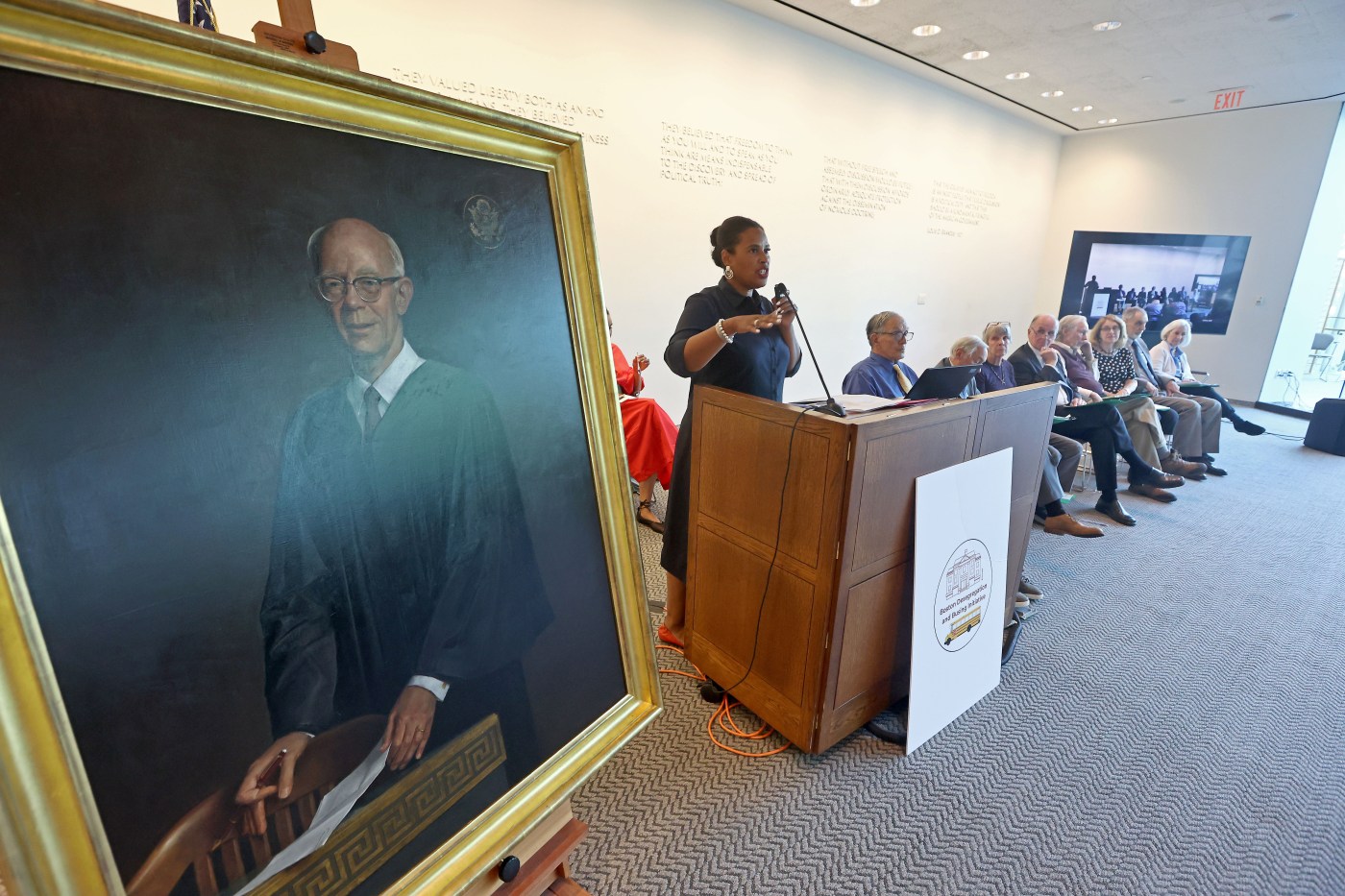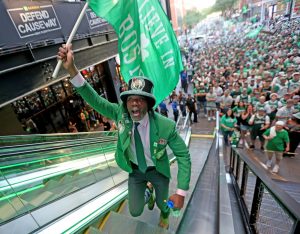
Bostonians explore past, future of school segregation on eve of busing order’s 50th anniversary
Bostonians involved in and impacted by the federal court decision that brought busing to desegregate the city’s schools 50 years ago gathered on the eve of its 50 anniversary to discuss the reality and impact of one of the most influential chapters in the city’s history.
“We are here to mark a set of stories and a history that needs to be told and told and learned from again and again,” said Karilyn Crockett, the chief equity for the city and granddaughter of one of the people involved in the case, during the event at the Moakley federal courthouse in Boston’s Seaport District. “It is noteworthy that we are an assembled here in the federal courthouse where a federal court helped us think through what the future of Boston could be.”
The Boston Desegregation and Busing Initiative held the second of five planned forums Thursday afternoon around the 50th anniversary of U.S. District Judge Wendell Arthur Garrity’s June 21, 1974, decision in Morgan V. Hennigan, a case brought by 14 adults and 43 children to protest the lack of quality education for Black students in Boston.
The forum featured a number of panelists, including lawyers for the plaintiffs, Garrity’s former law clerks, and professionals involved in racial equity work, law and history.
The Tallulah Morgan v. James Hennigan was brought in 1972 after years of Black families advocating for educational opportunity for Black students in Boston schools, speakers emphasized. Garrity issued the ruling in 1974, noting overwhelming evidence that the School Committee “intentionally brought about and maintained racial segregation” in the schools.
Busing, bringing Black students to majority white schools and vice versa between schools in South Boston, Roxbury, Charlestown and other areas, began in September 1974. It was met by virulent and often violent opposition from many white residents, some of Boston’s “darkest days,” panelists said.
“It would not be an exaggeration to say that there is a Boston before the Morgan case and a Boston after it,” said Judge David Barron, the Chief Judge of the First Circuit Court of Appeals. “What has been called the ‘new Boston,’ the Boston that we all now inhabit, is hardly intelligible without the lingering idea of the Boston that came before Morgan and all that transpired in its wake.”
Tanisha Sullivan, director of the Boston NAACP and the event moderator, drew on the legacy of Boston’s school segregation, citing a recent report from the state’s Racial Imbalance Advisory Council showing that 225,000 students in Massachusetts are left behind in “substandard segregated schools” due to a systemic statewide failure.
Given the continued challenges, Sullivan asked panelists whether busing was the right decision, gaining mixed and measured responses.
“I have a hard time sort of fixating on a bus as a pro or a con here, because I think we have so much lack of commitment to actually putting a concentrated effort into offering good education to the kids who are in our schools,” said Terry Seligmann, a lawyer who clerked for Garrity 1974 and 1975.
Ivan Madrigal-Espinoza, the executive director of Lawyers for Civil Rights, cited recent examples of racial discrimination in schools and beyond, including incidents in which a nine-year-old Black student was physically restrained in a Marblehead school more than 11 times, one of which necessitated an ambulance; a mock slave auction was held in a Southwick school; the U.S. Attorney’s ruled that Black students’ civil rights were violated at Boston Latin School; Boston Public School’s shared information that led students to be deported; and the fact that the teacher diversity standard in the Garrity decision has still never been met.
“I challenge you to think, how do we, each of us in this room, continue to advance that legacy in the face of so much adversity and so much work that remains undone?” said Madrigal-Espinoza.
A policeman breaks up a fist fight between supporters and protesters of forced busing in Boston on the first day of school in September 12,1974. The forced busing of students was done to racially integrate schools. (AP Photo/Peter Bregg)
White and Black students begin to fight outside Hyde Park High School in Boston, Mass., Feb. 14, 1975. From “American Experience: “The Busing Battleground.” (Courtesy of Associated Press)


